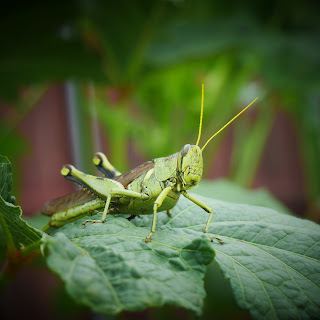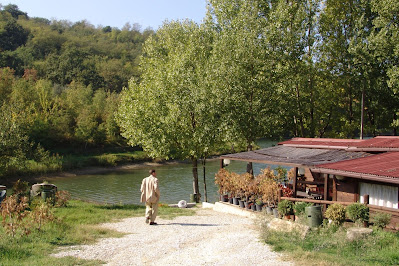cul·tur·al ap·pro·pri·a·tion
the unacknowledged or inappropriate adoption of the customs, practices, ideas, etc. of one people or society by members of another and typically more dominant people or society.
"His dreadlocks were widely criticized as another example of cultural appropriation"
Open an Italian cookbook or history of Italian cooking, and in the early chapters one might find a recounting of ingredients brought back to Italy from the likes of Marco Polo and Columbus.
Polo introduced Italy to new spices and exotic foods. Columbus and his cohorts brought back tomatoes, potatoes and cocoa from the Americas. Ice cream, so ubiquitous all over Italy as gelato, is said to have been introduced into Italy by the Saracens, who got it from the Hindus, who got it from the Chinese.
Were these inappropriately adopted by Italy? And if so, what is one to make of that?
Regarding wine, we hear talk of French varietals like Cabernet Sauvignon and Merlot. In the Maremma, these varieties are thriving. Are Cabernet and Merlot the dreadlocks of Tuscany?
I have more questions than answers, but in these times, we are living in everything is being re-examined for its appropriateness.
If Italy hadn’t adopted foods and wines from elsewhere, what would it look like today? I know that’s kind of a “what if” question that we can never truly know the answer to. But in the cold and dark months of Winter, one must have a fire burning somewhere, if only in our hearts.
Where do you draw the line?
My baseline is the interplay of the cultures, one adopting and one being appropriated from. And with that, the dominant culture in that scenario.
Was Italy a dominant culture when they got ice cream from China?
Or how about Italy and France? Were the Cabernet and Merlot grapes appropriated from a weaker culture? I think anyone who is French might say “non!”
Tomatoes, potatoes and cocoa, that’s another story. It is more than obvious that the European cultures came, saw and conquered, in where they called the “New World.” And the indigenous souls who saw their products being dispersed to the “Old World” were not in a position of power to do much about it then.
So, what does that make Gnocchi all’Italiana, which is a potato-based dumpling with a rich tomato sauce?
Or Polenta? After all, didn’t maize originate in the Americas? It wasn’t initially Italian, any more than the potato or the tomato was, yes?
There’s so much talk of native varieties, that it could get one’s head spinning when reading up on a particular grape. Moscato, didn’t it come from Alexandria? And Shiraz, did it not hail from a conquered (at the time) country? Or was it brought by a conquering culture, first to France? Were they or were they not culturally appropriated? Look at Moscato now in Italy, it commands a lot of attention from winemakers there. And while Shiraz (or Syrah) found its footing well in France, still one finds the grape from Tuscany to Sicily. What gives?
So, what is genuine? What is authentic? Is there a time limit on when something goes from being appropriated to being indigenous? I’m not being smarmy here. I really don’t know. That’s why I am asking so many questions.
Waverley Root, in his book “The Food of Italy” starts out by writing, “The food of Italy is a function of the history of Italy. A major component of that history is the record of the successive arrivals, over a period of 3,000 years, of wave after wave of invading peoples. Each new race brought with it its own customs, its own traditions and its own eating habits. Three of them in particular laid the foundations for the Italian cooking of today. They were the Etruscans, the Greeks and the Saracens.”
Wait, the claim is that the issue of cultural appropriation is done by the dominant culture, yes? If they weren’t dominant, would that notion of cultural appropriation then be a bit more complex than the definition that Oxford gives?
If a culture invaded and dominated another culture and that culture adopted the invader’s food and customs, what is that called? Domination?
Again, no easy straight-line answers here. And mind you, I am an observer in this, I don’t have a position I am trying to espouse. I’m just confused.
When one of the offspring in the family recently cut off their dreadlocks, after ten years, we were relieved. But this adult child didn’t cut them off because they were heavy and gave them excruciatingly painful neck aches. No, they explained it was because they felt bad about culturally appropriating another culture’s custom.
I wanted to ask this adult child about their ear gauges. After all, didn’t that originate somewhere else? Thailand or Myanmar, or Africa, or maybe even the Americas? But I didn’t ask, figuring the recently departed dreads were good enough for the time being.
Back to wine and Italy. Of the hundreds of grape varieties in Italy today, not all (or perhaps even many) were originally native to Italy. Aglianico, Malvasia, on and on, came from elsewhere and ventured forward to land in Italy. Was that an accident? Was it an appropriation? I rather think you ask that question to a vigneron in Piedmont or Tuscany about Nebbiolo or Sangiovese, and they might look at you askance. “What do I care where they came from,” they might respond. “We all came from somewhere else, for God’s sake,” they might follow up with. Yes, but.
It's a hot topic today, especially if you are part of a culture or society that has (or had) been exploited and taken from. And many voices are raising about that, not just in the world of food and wine. But Italian food and wine doesn’t exist in a vacuum. People are clamoring for authenticity and want to give credit where credit is due, at the very least.
Do the Incas or the Toltecs want their potatoes and tomatoes back? They might, if the Western world hadn’t decimated their ranks and wiped out their society in their conquest of the Americas. And while these are the sins of the fathers; how do we parse this today? Stop eating Gnocchi all’Italiana? Stop drinking Sassicaia? Or Masseto? Is that what is necessary today?
I was reading about pizza the other day. The writer said that pizza, as we know it, didn’t necessarily originate in Italy, that instead it grew out of the Italian American experience. But the Italians adopted it, because, as the story goes, they wanted to cater to the post-war American tourists in the cities (Rome,etc) and pizza was familiar ( and comfortable) to those tourists. Now, look where pizza has gone to.
Did the Italians culturally appropriate pizza from the Italian Americans? I’m getting dizzy going around and around with this subject.
But, still, I cannot look away.
What would a meal in Italy look like if the food and the grapes for the wines came exclusively, and originally, from the Italian peninsula? Would we even like it?
To be sure, however those ingredients came to Italy and were adopted/adapted and refined, maybe even perfected, modern-day Italian food and wine owes a great debt to the world. I believe the way they are paying it back (and forward, as well) is to keep refining and loving the ingredients and making the finished product better. We can not do a lot about what happened in the distant past, but we can make it better today by showing greater sensitivity and respect for the ingredients, and for the people who initially nurtured them back when, so the Italians are able to get the finest expressions of them possible.
That is something Italy and Italians know how to do.








